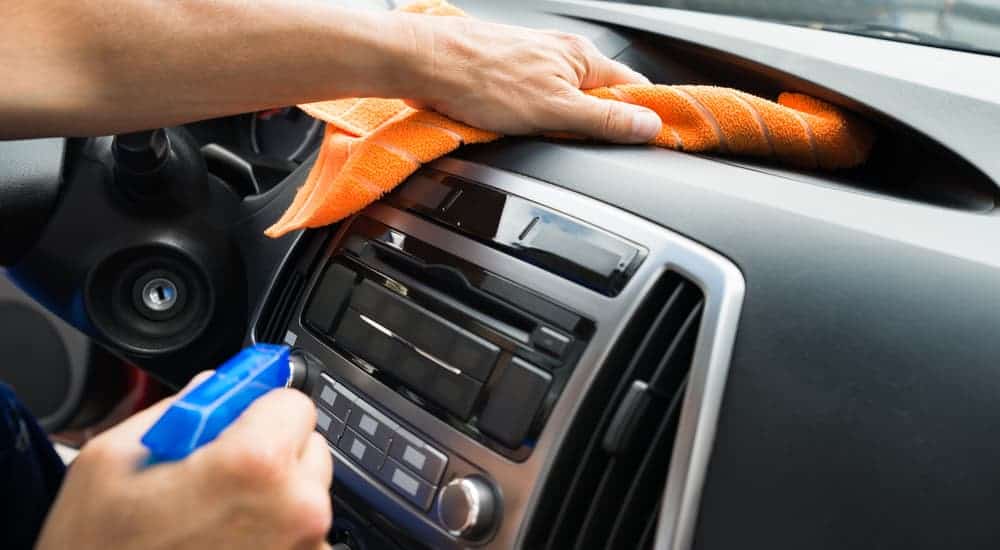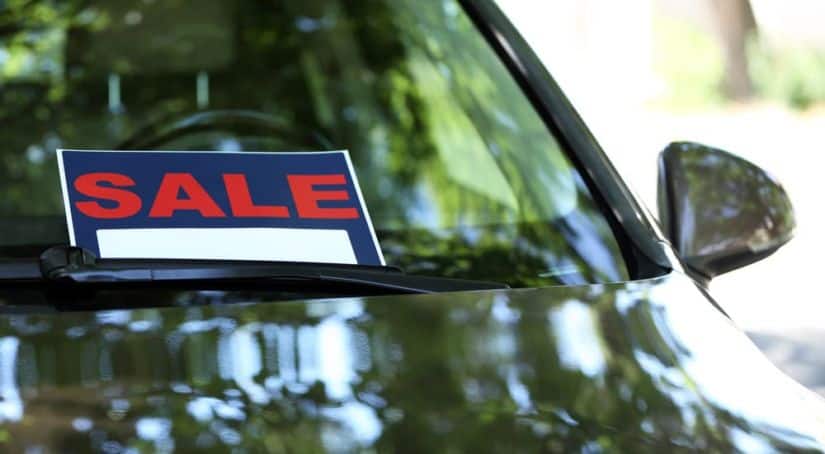You’ve finally reached the tipping point with your vehicle, the time in every car’s life when the repairs required aren’t justified. Maybe you want to fund your dream vehicle and would rather sell your car on your own because you believe you can make more for it than you would get on a trade-in for a down payment. Or, you’ve found a dealership with a great “sell us your car” advertisement that you want to look into more. Whatever your reasons for selling your car, there are certain mistakes a lot of people make in the process. Those mistakes cost money or may mean you simply can’t sell your vehicle. Here is a list of ten mistakes people make when selling their cars.
#1: Not Knowing the Worth of Your Vehicle
Trying to sell your car without knowing the true worth can mean one of two things: you either over-value it or under-value it. When you over-value the car, you won’t gain interest. People are looking for good deals when purchasing a used vehicle, so if you over-value your car, they aren’t likely to contact you about buying it. On the other hand, if you under-value your car’s worth, someone may take advantage of your lack of knowledge about vehicle sales, and you’ll lose money in the deal.
Knowing the worth of your vehicle means knowing not just what it’s worth in terms of make, model, and year, but also the condition. Do you know how to judge the difference between fair and good condition? Are you confident in your ability to ascertain the value of the work that needs to be done if repairs are needed? Can you be sure the car has been given a complete inspection for any potential problems the buyer may encounter when the car is inspected after the sale? These are all questions to be answered before you sell your car, so you are certain you can put the right price on your vehicle.
#2: Forgetting to Clean the Vehicle
This should be an easy step in the preparation of selling a car, but some choose to ignore the potential of a freshly-detailed car when selling privately. Take an hour or two and vacuum the carpets and seats, wash the surfaces and interior windows with a soft cloth and spray cleaner, and run the exterior through a carwash with a wax. You can even hand-wash your car to save money, but car washes cost little, and there are usually places to vacuum out your car, too. Spend a few extra minutes filling tires with air and making sure the spare tire, removable parts, and mats or carpets are all in place. A little time will go a long way toward selling if the car looks nice.

#3: Not Having Documents in Order
This is a big step to miss in selling your vehicle privately. If you want to sell the car, you need your title, registration, and a bill of sale prepared. Every state has different rules to follow about private sales, so make sure you check your local DMV prior to selling to check the state laws before you begin advertising. Know what’s required to be on a bill of sale, and be careful to include language that will protect you as the seller. Someone who buys your vehicle may return in a matter of days to ask for their money back if the car breaks down after the purchase, so your bill of sale needs to state that all sales are final upon exchange of cash and signature of agreement. Additionally, until you are sure a person plans to purchase and you know they have the money, keep your title in a safe location.
#4: Not Screening Potential Buyers
When you advertise your vehicle for sale as a private seller, potential scammers may come to call. Be wary of putting your address online, and be smart about screening possible buyers before meeting them in person. Ask a few questions over the phone before inviting someone to come see the car, such as what type of car they are looking for, whether or not they have the means to purchase outright or have financing lined up, and to discover how serious they are.
Be careful of anyone who says they want to buy your car without seeing it first, especially if they offer to send you a check. This is a potential scam and one that is common in private vehicle sales. Let the person know you expect either cash or a safe online transaction like PayPal or credit so
you can ensure the sale will go through before you agree to anything. A potential buyer who is serious and honest will not hesitate to agree to such terms if they truly have an interest in purchasing your car.
#5: Not Being Honest about the State of the Vehicle
If you want honest buyers, you should be an honest seller. Be up front about the state of the vehicle, especially if it’s been in an accident. Your buyer deserves to know what repairs have been made, what may currently need work, and what treatments you have done to keep the car in good working condition. Have you undercoated the car recently, or have you let it go? Are the tires new or in need of replacement? When was the last oil change? Are you the only owner, or did you buy it used? Prepare to answer these questions if they are asked, and be transparent.
#6: Not Knowing How to Advertise
You may believe that a quick ad on Craigslist will be enough, but not if you want to sell your car for what it’s really worth. Many people make the mistake of taking poor quality photos, not taking enough photos, or writing bad descriptions. A smart buyer is looking for photos that are clear, have good lighting, and show important details of both the exterior and interior. A well-written description has the make, model, and year, but also shares the odometer reading, whether or not the vehicle can pass inspection, has all the original parts, and whether or not it’s been kept up to date with repairs.
#7: Not Being Ready to Show the Car When Buyers Call
Do you really want to sell your car? When a potential buyer calls to see it, you should be prepared to talk on the phone to screen them, and then be ready to make an appointment to allow them to test drive. If you give excuses about being too busy to meet when it’s convenient for the buyer, you may be missing out on a sale. Answer the calls as quickly as possible to demonstrate your interest in selling, and be flexible in your schedule, so the buyer feels they are important in the transaction.
#8: No Plan for Safely Test Driving

Again, you should avoid sharing your address online, even when you plan to meet with a potential buyer who wants to see and test-drive the car. Rather than inviting a stranger to your home, arrange a public meeting place where plenty of people may frequent, like a mall parking lot, or even outside of the DMV. Plan to ride along with the interested party while they test drive, and prior to allowing that you should ask to see their license. Discuss a route you can agree to take beforehand, and always bring someone you know to come along with you. Never get into a car alone with a person you’ve never met.
#9: Forgetting to Check for Personal Info on Paperwork
Cleaning out your car should have ensured that you cleared out any papers or receipts that could have your personal information lingering in the vehicle after you sell it. Check your glove compartment, storage bins, map pockets, visors, and even between or under seats for any papers that could have your address, social security number, or other identifying information on them. While most people would never take advantage of your personal information, you can never be too careful about protecting yourself. Be sure you have your registration, insurance documents, and repair receipts cleaned out of the glove box, and if you plan to give repair documentation to the next owner, make sure you tape over any identifying info, so it isn’t visible and make a copy to give the buyer instead of the original.
#10: Not Knowing the Sales Process Prior to Sale
Before you hand over the keys, call the DMV or check the website about fees, paperwork, and rules about what is expected of both the seller and buyer in a private vehicle sale. Know your rights as the seller and know what the buyer is expected to do, too. If you are required to pay a transfer fee or sales tax, you will want to bundle that into the price of the vehicle, rather than paying it out of pocket. Other fees may apply as well, so it will be best to research before you sell. Call your insurance company to find out what they may require from you in the case of states which have insurance laws.
If this all seems overwhelming, keep in mind that a dealership takes care of all these details for you. When you want to sell a vehicle because you plan to purchase new, a dealership trade-in may not seem like you’re getting as much money, but you gain peace of mind in the sale. Knowing your paperwork is done for you, and none of the hassles of cleaning, advertising, and protecting yourself against identity theft or fraud are off your plate, isn’t that worth the extra cash? Even if you only want to sell your car without purchasing, a dealership can give you a fair price without you needing to do the leg work of a private sale.



